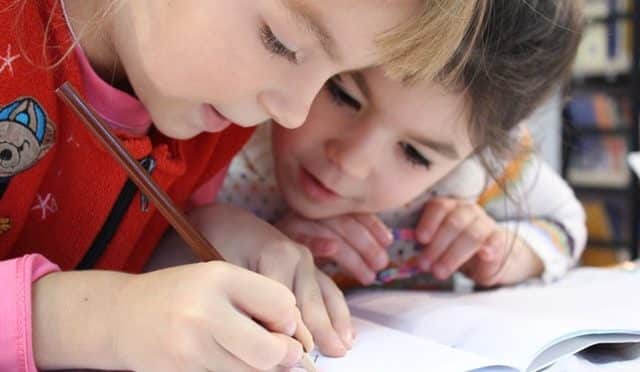Let's Get Started
You'll get the most value from financial planning if your specific goals and needs match a firm's philosophy and services. Let's learn more about each other.
Ready to Get Started?


How did you first learn about money?
Was it a piggy bank where you stashed away the money you earned from chores? Was it when you realized you had to pay this thing called taxes? Was it when you learned (maybe the hard way) that a credit card isn’t actually free?
No matter when you learned, someone probably helped you. You can look at your experience and let that inform your own approach to teaching your kids about money and finances. As a parent, it is your turn to help teach your kids about money.
Today’s post is focused on teaching kids the importance of saving. Let’s dive in!
Conversations about money are an important piece of the learning experience. While they may be difficult to have, it is important to push through that discomfort and try to have them anyway. Instilling positive, healthy conversations about money will help your kids develop a good relationship with it. When you have a positive view of money, you will be more likely to manage it better in the future.
Start these conversations young and teach them new elements as they grow. Saving is the foundation for a healthy relationship with money. It is a wonderful introduction because you can approach the subject and speak with them on their level, making them feel comfortable with money and the process.
By encouraging discussions about money, you are providing a solid foundation for your kids to develop good habits and attitudes toward finances and the role money plays in their lives both now and as they grow up.
In financial planning, we talk about your reason or your why a lot. This reason is often the motivator, propelling you forward to reach your goals. Therefore when teaching your kids to save, it is important that they understand why it matters. You can ask them, ‘Why do you want this toy? Why will it make you happy? Why is this important to you?’ By personalizing the questions, you are encouraging your kids to think a little deeper about the item they are interested in.
Teaching your kids to save introduces the concept of long-term savings. We live in a world where instant gratification takes center stage, and that is a tough thing for many kids to understand. Instead of being able to purchase a certain toy now, they have to wait and save up their money until they can buy it.
This exercise will also teach them that in order to get something you want, you’ll have to work for it. A diligent saving habit displays discipline, hard work, commitment, and consistency, skills that are invaluable both in financial matters and life in general.
Saving also introduces the concept of goals and setting goals. Financial goals are a big piece of the puzzle and showing your kids what it means to have goals, work toward them, and succeed will be wonderful for their development. Buying that toy may be a goal they have. Help them count the money they do have saved and how much more they need to reach their goal. Let’s say the toy costs $20. They have $5 saved and they get $5 a week for doing their chores. That means that after 3 weeks of chores they can afford the toy.
An exercise like this will help show them that working for what they want is important and that saving can help you get there.
Saving is a complex idea, one that everyone struggles with, so how can you best introduce your kids to it? Create your own saving system. It doesn’t have to be complex, it just has to work for you.
Many households have a system where their kids have a list of chores to do each week and if the work is done well, they receive an allowance. Encourage your kids to put that allowance in a jar and watch it grow week to week. You can even let it accrue interest if you want to show them how that works. Before they buy something, make sure they know how much they have in their ‘bank’ and how long it will take to save up for the thing they want.
Teaching your kids about money isn’t easy. It is a conversation that will continue for years to come. If you are stuck on where to start, give us a call. We love working with families and getting them on the path to help them reach their goals.